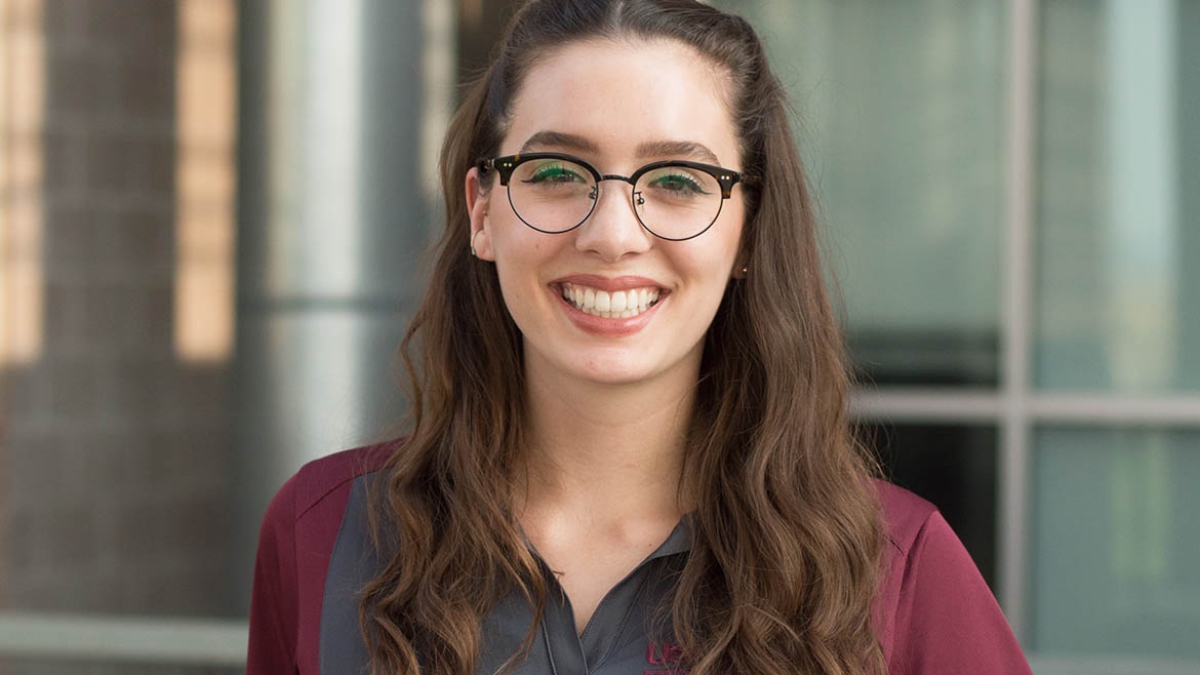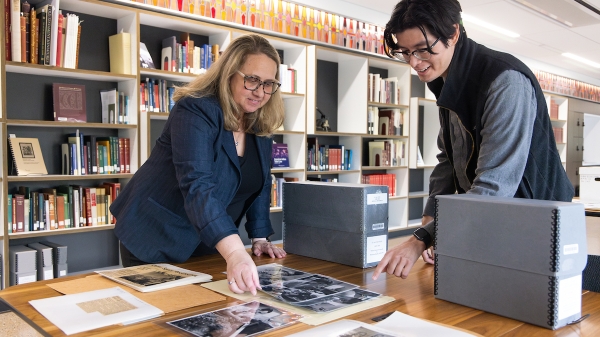ASU Polytechnic campus English, history grad earns Fulbright to South Korea

After her Fulbright year in South Korea, ASU Polytechnic campus graduate Julia Anderson intends to earn a law degree and pursue work related to international development.
Editor’s note: This is part of a series of profiles for spring 2018 commencement.
For ASU Polytechnic campus graduating senior Julia Christine Anderson, the news that she was chosen to receive a Fulbright U.S. Student Program Award to South Korea for the 2018-19 academic year ticked just about every one of her passions: her love of teaching (she’ll be an English teaching assistant in secondary education), her fascination with history and political science, her wanting to make an impact in international development, and especially her blossoming knowledge of and interest in South Korea.
“I’ve been interested in the two Koreas since I was a freshman in high school,” Anderson said. “I was a policy debater, and my topic for the entire year was on U.S. military involvement in South Korea. Since then, I’ve closely followed the news on the conflict, tutored South Korean students and learned about the situation from their perspective. Waking up to the news that the two countries had reached a peace agreement was a very joyful moment for me,” she added, “and I’m so happy for the citizens of Korea who have long struggled with this divide.”
Anderson came to ASU’s College of Integrative Sciences and Arts from Petaluma, in Northern California, as an English major.
“I chose ASU because I was impressed with the Polytechnic campus and with Barrett, the Honors College,” she said. “ASU offered affordability and quality, and I had wanted to go to school away from home, so it was a good choice for a number of reasons.”
Her sophomore year, she added a second major in history, with a political science focus. She signed on as a student lead in Changemaker Central and became active in student government. That same year, Anderson also went to Peru with Global Resolve, the Polytechnic campus-based initiative that connects students with communities to co-develop and implement projects that improve quality of life for those in poverty.
“I helped install solar units at an orphanage but also had the opportunity to teach kids English,” she said. “I found it amazing how people can communicate even without a common language.”
But Anderson said it was the semesters she worked as a writing tutor in ASU’s University Academic Success Programs as a sophomore and junior that got her further interested in the Korean Peninsula — and turned a general awareness and curiosity about the Fulbright Program into a serious pursuit.
“I was hosting conversational English sessions with international students, and two education master’s students from South Korea began participating regularly. I really enjoyed talking with them, and they taught me so much about the culture and educational systems in their country,” she explained. “My supervisor, Kelly Chase, was the one who pressed me to consider applying to Fulbright.”
While Anderson won’t learn until later this summer about her specific placement location and institution, she’s excited about the world of possibilities the experience will open.
“The award letter noted that among the 380,000-plus Fulbrighters since the program’s inception in 1946, there are 59 Nobel Laureates, 82 Pulitzer Prize winners, 71 MacArthur Fellows, 16 Presidential Medal of Freedom recipients, and thousands of leaders across the private, public and non-profit sectors,” she stated. “That is pretty inspiring. It definitely expands the go-big feeling that I’m leaving ASU with.”
Anderson answered some additional questions about her ASU experience.
Question: What was your “aha” moment, when you realized you wanted to study the field you majored in?
Answer: English was my favorite subject in high school, as was history. Paired with my desire to go to law school, I thought majoring in the two subjects would be a great choice.
Q: What’s something you learned while at ASU — in the classroom or otherwise — that surprised you, that changed your perspective?
A: I have learned so much these past four years! Most notably, I’ve learned how to be an effective leader. I learned this as student lead of Changemaker Central and as president of Undergraduate Student Government Polytechnic. I learned to have an open mind, to be nonjudgmental of others and to have empathy for fellow students, professors and community members. I learned how to strike a balance between school, work and a social life. I learned that making connections is as important as getting good grades. And academically, I learned how to become a better writer, to conduct research and to think with a historical perspective.
Q: What’s the best piece of advice you’d give to those still in school?
A: Hard work really does pay off! Take advantage of the amazing opportunities that you have being at this university. Pay attention in class, do your homework and study, because it will all be worth it. Also be sure to have fun, which is easy to do at ASU.
Q: What was your favorite spot on the ASU Polytechnic campus, whether for studying, meeting friends or just thinking about life?
A: The walkway between the Dean of Students office and the Fulton advising office. It’s beautiful. Whenever I walk through it I reflect on how beautiful my campus is and how lucky I am to attend ASU.
Q: Did you do an internship related to your major?
A: Yes, I interned full-time for a semester at the Arizona State Senate. I was a research analyst intern for the Health and Human Services Committee. This fulfilled my political science focus in my history major.
Q: What are your plans after graduation?
A: After law school I’m interested in pursuing work in a government position related to international development.
Q: If someone gave you $40 million to solve one problem on our planet, what would you tackle?
A: Girls’ access to education. So many girls are prevented from going to school simply due to accessibility. Our world cannot progress so long as girls are unable to become educated.
More Sun Devil community

University Archives chronicles more than 140 years of Sun Devil history
What was the name of the butcher who bequeathed the first piece of land that ultimately became the nation’s largest public…

3 outstanding ASU alumni named The College Leaders of 2024
Three outstanding Arizona State University alumni from The College of Liberal Arts and Sciences will be named as this year’s…

From mushy ice to Mullett Arena
Greg Powers rubbed the top of his head and smiled.Powers, Arizona State University’s hockey coach, had been asked to reflect on…